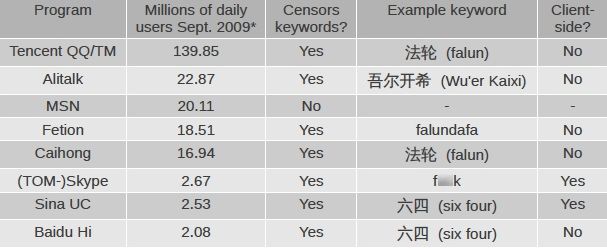- 开源的数据库监控和管理工具—PMM
蚂蚁在飞-
数据库人工智能运维后端
PMM(PerconaMonitoringandManagement)是一个开源的数据库监控和管理工具,主要用于监控MySQL、MariaDB、MongoDB和PostgreSQL等数据库的性能和健康状况。PMM提供了一套可视化的界面,帮助数据库管理员和开发人员对数据库进行深度监控、性能优化和故障排查。PMM由两个主要组件组成:1.PMMServerPMMServer是PMM的核心组件,负责收集和
- 使用飞书群机器人监控服务器GPU使用率
sunrise_ccx
服务器飞书
目标:如果服务器GPU空置,可以及时推送消息到飞书群。其他类似的监控目标也可以修改代码实现。步骤:(1)首先在群聊设置加入机器人,复制webhook_url(2)在服务器后台运行如下代码。注意替换webhook_url"""nohuppythonmonitor_gpu.pymy_server>monitor_gpu.log2>&1&"""importsysimportsubprocessimpor
- C# lock,Monitor,Mutex的区别
HappyGirl快乐女孩
C#c#开发语言lockMonitormutex
1-lock和Monitor的区别一、lock的底层本身是Monitor来实现的,所以Monitor可以实现lock的所有功能。二、Monitor有TryEnter的功能,可以防止出现死锁的问题,lock没有。2-Mutex和其他两者的区别测试三个都是在限制线程之外的互斥,线程之内,都不限制,同一个线程如果被lock两次。是不会出现死锁的。所以Mutex本身可以实现lock和Monitor所有的操
- 每日练习-[羊城杯 2020]Blackcat
He@11
哈希算法算法
下载mp3文件,010打开末尾有代码提示if(empty($_POST['Black-Cat-Sheriff'])||empty($_POST['One-ear'])){die('x');}$clandestine=getenv("clandestine");if(isset($_POST['White-cat-monitor']))$clandestine=hash_hmac('sha256',
- 84,【8】BUUCTF WEB [羊城杯 2020]Blackcat
rzydal
前端
进入靶场音乐硬控我3分钟回去看源码开始解题运行得到afd556602cf62addfe4132a81b2d62b9db1b6719f83e16cce13f51960f56791b最终组成payload:White-cat-monitor[]=1&Black-Cat-Sheriff=afd556602cf62addfe4132a81b2d62b9db1b6719f83e16cce13f51960f5
- 这段代码能处理哪些类型的商品?
数据小小爬虫
爬虫
在上述代码中,使用的是eBayFindingAPI的findItemsByKeywords操作,它通过关键词搜索eBay上的商品。因此,这段代码能够处理的商品类型取决于你提供的关键词。换句话说,你可以通过修改关键词来搜索任何类型的商品。可以处理的商品类型以下是通过代码能够处理的商品类型示例:电子产品关键词:"laptop"、"smartphone"、"camera"示例:搜索笔记本电脑、智能手机、
- Chapter 3-18. Detecting Congestion in Fibre Channel Fabrics
mounter625
Linuxkernel网络linux服务器kerneltcp/ip
MTMUse-casesMTMisalightweightApp.ItisnotdesignedtotakeplaceofafullyfunctionalmonitoringplatformslikeCiscoNDFC/DCNM.Instead,itisdesignedforuserswholikecustomizingthemonitoringplatformsbasedontheproblem
- RTSP的URL中用户名或密码含特殊字符怎么办?
音视频牛哥
RTSP播放器大牛直播SDK实时音视频音视频rtsp播放器rtspplayerrtspurl特殊字符rtsp解析url大牛直播SDK
技术背景在RTSP的URL中,如果包含用户名、密码以及特殊字符串,一般来说,需要遵循特定的格式和处理方式:用户名和密码:RTSPURL中包含用户名和密码时,通常使用username:password@的格式放在主机地址之前。例如:rtsp://admin:
[email protected]:554/cam/realmonitor?channel=1&subtype=0,其中a
- mysql8 MHA集群部署
L白眸
数据库mysql数据库
服务器环境系统主机名IPcentos7.9mha-master192.168.200.41、192.168.200.45(vip)centos7.9mha-slave01192.168.200.42centos7.9mha-slave02192.168.200.43centos7.9mha-monitor192.168.200.40SSH互信mha-master、mha-slave01、mha-s
- skynet 源码阅读 -- timer 的实现原理
Winston-Tao
skynet源码阅读c语言skynettimer时间轮算法
1.Timer驱动的核心流程1.1Timer线程驱动以下是timer线程的核心流程代码。Skynet的Timer模块是通过一个单独的线程(thread_timer)来定期更新定时器的状态。每隔2500微秒(2.5ms)更新一次定时器的状态。ps:为什么是2500?staticvoid*thread_timer(void*p){structmonitor*m=p;skynet_initthread(
- Python爬取搜索引擎结果数目
Gaia_Pygmalion
python
#coding:utf-8importurllibimporturllib2importreimportsysimportsocketimporttimeprint"Startofwork"filename="keywords.txt"#关键词文件fid=open(filename,'r')all_text=fid.readlines()NumOutput=open(r'searchnumber.
- arm-trusted-firmware (ATF介绍)
赢在拼搏中
1.大致描述ATF提供了安全世界的参考实现软件[ARMv8-A],包括执行的[SecureMonitor][TEE-SMC]异常级别3(EL3)。它实现了各种ARM接口标准,如电源状态协调接口([PSCI]),可信板启动要求(TBBR,ARMDEN0006C-1)和[SMC呼叫公约][SMCCC]。尽可能代码旨在重用或移植到其他ARMv8-A型号和硬件平台。2.功能◆初始化安全世界(例如,异常向量
- Chapter 3-15. Detecting Congestion in Fibre Channel Fabrics
mounter625
Linuxkernel网络服务器kernellinux
Credit-loss-recoTheCredit-loss-recoPort-MonitorcounterdetectstheinstancesofCreditLossRecoveryonaswitchport.AstheTxCreditLossRecoverysectionexplains,whenaswitchporthaszeroremaining-Tx-B2B-creditsfor1se
- CDH日志清理
只是甲
#CDH大数据平台大数据和数据仓库Cloudera日志清理hadoop
备注:CDH版本:6.3.1背景CDH集群运行了2个多月了,根目录磁盘使用率接近80%了,需要清理CDH日志。一.查看问题CDH的日志文件一般在如下几个目录,可以通过如下代码进行查看。代码:cd/var/log/du-s./*|sort-nrcd/var/lib/cloudera-service-monitordu-s./*|sort-nrcd/var/lib/cloudera-host-moni
- VideoFileClip 获取视频报错、
Tomorrow'sThinker
音视频moviepy
报错内容:OSError:MoviePyerror:failedtoreadthedurationoffile/mnt/data/test/monitor/videos/new_video/1652063723941.mkv.Herearethefileinfosreturnedbyffmpeg:ffmpegversion4.2.2-statichttps://johnvansickle.com/
- skynet 源码阅读 -- 启动主流程
Winston-Tao
skynet源码阅读skynetskynet启动游戏服务器框架c语言
Skynet启动主流程分析Skynet是一个轻量级、高并发的服务器框架。它在启动时会进行一系列初始化操作,并启动多个不同功能的线程(Monitor、Timer、Worker、Socket),从而实现消息分发、定时器、网络I/O等核心功能。本文主要从main()函数开始一步步trace,循序渐进地看Skynet的启动过程以及各条线程的分工,为后续深入阅读Skynet源码做铺垫。1.启动入口main函
- react_hooks系列08_useId
田江
react.jsjavascript前端
useId是一个钩子,用于生成唯一的ID,在服务器和客户端之间是稳定的,同时避免hydration不匹配。类似于Symbol,也类似于uuid。注意:useId不是用来生成列表中的键的。Keys应该从你的数据中生成。对于一个基本的例子,直接将id传递给需要它的元素。对于同一组件中的多个ID,使用相同的ID附加一个后缀。如下例子,保证了元素id的唯一性。importReact,{useId,useS
- View memory usage in Activity Monitor on Mac
howeres
macos
YoucanseetheamountofsystemmemorybeingusedonyourMac.IntheActivityMonitorapponyourMac,clickMemorytoseethefollowinginthebottomofthewindow:MemoryPressure:Graphicallyrepresentshowefficientlyyourmemoryisser
- Redis性能优化
小马不敲代码
数据库redis缓存数据库
性能优化避免慢查询命令当发现redis性能变慢的时候,可以通过redis日志,或者是latencymonitor工具,查询变慢的请求,根据请求对应的具体命令以及官方文档,确认下是否采用了复杂度高的查询,如果确实存在大量的慢查询命令则优化用其他高效的命令替代eg:当需要返回一个set中的所有成员时,使用sscan多次迭代返回代替smembers(避免一次返回大量数据,造成线程阻塞)当需要执行排序、并
- org.apache.ibatis.binding.BindingException: Invalid bound statement (not found): cn.zhsw.dispatch.mo
wrx繁星点点
#接口报错总结分析Java-Bug合集目录apachejavamavenmybatisxml
报错日志org.apache.ibatis.binding.BindingException:Invalidboundstatement(notfound):cn.zhsw.dispatch.module.event.dal.mysql.event.EventMapper.selectVideoMonitorList问题分析:使用xml编写的sql语句但是报错找不到,namespace正确sql名
- 探索LLMonitor:全面提升AI应用可观测性的开源平台
afTFODguAKBF
人工智能python
引言在构建和部署大型语言模型(LLM)和聊天模型时,开发者通常面临数据追踪、使用情况分析、成本控制等各种挑战。LLMonitor是一个开源的可观测性平台,专注于解决这些挑战。它提供了成本和使用分析、用户跟踪、追踪和评估工具。本文将详细探讨如何设置和使用LLMonitor,以提高AI应用的透明度和效率。主要内容设置LLMonitor要开始使用LLMonitor,首先需要在llmonitor.com上
- Ubuntu安装vmware-workstation失败后解决方法
demodeom
ubuntulinux运维
由于不用版本、不同内核的Ubuntu,安装vmware-workstation时,可能会安装失败,安装失败后的解决方案,错误1使用以下命令可以查看安装失败的模块sudo/etc/init.d/vmwarestart输出如下,多数情况下都是这两个模块失败了StartingVMwareservices:VirtualmachinemonitorfailedVirtualmachinecommunica
- Chapter 3-14. Detecting Congestion in Fibre Channel Fabrics
mounter625
Linuxkernel网络tcp/ip网络协议服务器
PortMonitorPolicyParametersEachpolicycontainsoneormorecounterstomonitor.Countershavethefollowingparameters:每个策略包含一个或多个要监控的计数器。计数器有以下参数:Countername:Thenameofthecounterwhichdescribesitsfunction.说明计数器功能的
- bash监控指定目录下的文件变动并执行相应动作
dangdanding
Bash笔记网络安全bash服务器linux运维
#!/bin/bashdir_to_monitor="/home/sub_dirprev_files=$(ls-A$dir_to_monitor)#echo"prev_files:$prev_files"prev_files_file=$(mktemp)ls-A$dir_to_monitor>$prev_files_filewhiletrue;docurrent_files=$(ls-A$dir_
- Redis集群部署——sentinel模式
学!学!学
redissentineljava
容器化运行sentinel实例1、获取sentinel.conf配置文件从官网下载对应的tar包,解压找到对应的sentinel.conf配置文件,修改其中的配置文件注意:#设置监听节点,最后的数字2是quorum,表示客观下线时需要多少哨兵服务同意sentinelmonitormaster63792#设置验证密码避免不必要的错误信息sentinelauth-passmaster123456#设置
- Java语言基础 关键字与保留字
鹿人甲丁
javajava
关键字(keyword)的定义和特点定义:被Java语言赋予了特殊含义,用做专门用途的字符串(单词)特点:关键字中所有字母都为小写官方地址:https://docs.oracle.com/javase/tutorial/java/nutsandbolts/_keywords.html用于定义数据类型的关键字classinterfaceenumbyteshortintlongfloatdoublec
- HarmonyOS Next V2 @Monitor 和@Computed
harmonyos
HarmonyOSNextV2@Monitor和@Computed@Monitor介绍@Monitor是状态把管理V2版本中的用于监听状态变量修改的技术。它可以直接用在@ComponentV2装饰的自定义组件中,用于被@Local、@Param、@Provider、@Comsumer、@Computed修饰的状态变量中对于深层次的数据,如深层次对象、对象数组等,需要搭配@ObservedV2、@T
- ARM V8 base instruction -- Debug instructions
xiaozhiwise
Assemblyarm
/**Debuginstructions*/BRK#imm16进入monitormodedebug,那里有on-chipdebugmonitorcodeHLT#imm16进入haltmodedebug,连接有外部调试硬件
- python错误集锦--类型错误:‘NoneType‘ object is not subscriptable
程序员的修养
pythonpython开发语言后端
python类型错误:‘NoneType’objectisnotsubscriptable网上查到的原因和方案如下,但是小编给变量的命名不太像系统内置关键字。原因:变量使用了系统内置的关键字list解决:重新定义下这个变量小编需求是获取网络数据,从中获取某个key的值然后赋值给变量,代码如下targetData=monitorData['MonitorData’]既然是网络数据就有可能没有这个ke
- 钉钉自定义机器人
AlphaHinex
原文地址:https://alphahinex.github.io/2022/03/06/dingtalk-custom-robot/description:"像发手机短信一样方便"date:2022.03.0610:34categories:-DevOpstags:[Dingtalk,Robot]keywords:dingtalk,robot,钉钉,机器人,聊天机器人聊天机器人从hubot起接触
- jQuery 键盘事件keydown ,keypress ,keyup介绍
107x
jsjquerykeydownkeypresskeyup
本文章总结了下些关于jQuery 键盘事件keydown ,keypress ,keyup介绍,有需要了解的朋友可参考。
一、首先需要知道的是: 1、keydown() keydown事件会在键盘按下时触发. 2、keyup() 代码如下 复制代码
$('input').keyup(funciton(){
- AngularJS中的Promise
bijian1013
JavaScriptAngularJSPromise
一.Promise
Promise是一个接口,它用来处理的对象具有这样的特点:在未来某一时刻(主要是异步调用)会从服务端返回或者被填充属性。其核心是,promise是一个带有then()函数的对象。
为了展示它的优点,下面来看一个例子,其中需要获取用户当前的配置文件:
var cu
- c++ 用数组实现栈类
CrazyMizzz
数据结构C++
#include<iostream>
#include<cassert>
using namespace std;
template<class T, int SIZE = 50>
class Stack{
private:
T list[SIZE];//数组存放栈的元素
int top;//栈顶位置
public:
Stack(
- java和c语言的雷同
麦田的设计者
java递归scaner
软件启动时的初始化代码,加载用户信息2015年5月27号
从头学java二
1、语言的三种基本结构:顺序、选择、循环。废话不多说,需要指出一下几点:
a、return语句的功能除了作为函数返回值以外,还起到结束本函数的功能,return后的语句
不会再继续执行。
b、for循环相比于whi
- LINUX环境并发服务器的三种实现模型
被触发
linux
服务器设计技术有很多,按使用的协议来分有TCP服务器和UDP服务器。按处理方式来分有循环服务器和并发服务器。
1 循环服务器与并发服务器模型
在网络程序里面,一般来说都是许多客户对应一个服务器,为了处理客户的请求,对服务端的程序就提出了特殊的要求。
目前最常用的服务器模型有:
·循环服务器:服务器在同一时刻只能响应一个客户端的请求
·并发服务器:服
- Oracle数据库查询指令
肆无忌惮_
oracle数据库
20140920
单表查询
-- 查询************************************************************************************************************
-- 使用scott用户登录
-- 查看emp表
desc emp
- ext右下角浮动窗口
知了ing
JavaScriptext
第一种
<!DOCTYPE html PUBLIC "-//W3C//DTD XHTML 1.0 Transitional//EN" "http://www.w3.org/TR/xhtml1/DTD/xhtml1-transitional.dtd">
<html xmlns="http://www.w3.org/1999/
- 浅谈REDIS数据库的键值设计
矮蛋蛋
redis
http://www.cnblogs.com/aidandan/
原文地址:http://www.hoterran.info/redis_kv_design
丰富的数据结构使得redis的设计非常的有趣。不像关系型数据库那样,DEV和DBA需要深度沟通,review每行sql语句,也不像memcached那样,不需要DBA的参与。redis的DBA需要熟悉数据结构,并能了解使用场景。
- maven编译可执行jar包
alleni123
maven
http://stackoverflow.com/questions/574594/how-can-i-create-an-executable-jar-with-dependencies-using-maven
<build>
<plugins>
<plugin>
<artifactId>maven-asse
- 人力资源在现代企业中的作用
百合不是茶
HR 企业管理
//人力资源在在企业中的作用人力资源为什么会存在,人力资源究竟是干什么的 人力资源管理是对管理模式一次大的创新,人力资源兴起的原因有以下点: 工业时代的国际化竞争,现代市场的风险管控等等。所以人力资源 在现代经济竞争中的优势明显的存在,人力资源在集团类公司中存在着 明显的优势(鸿海集团),有一次笔者亲自去体验过红海集团的招聘,只 知道人力资源是管理企业招聘的 当时我被招聘上了,当时给我们培训 的人
- Linux自启动设置详解
bijian1013
linux
linux有自己一套完整的启动体系,抓住了linux启动的脉络,linux的启动过程将不再神秘。
阅读之前建议先看一下附图。
本文中假设inittab中设置的init tree为:
/etc/rc.d/rc0.d
/etc/rc.d/rc1.d
/etc/rc.d/rc2.d
/etc/rc.d/rc3.d
/etc/rc.d/rc4.d
/etc/rc.d/rc5.d
/etc
- Spring Aop Schema实现
bijian1013
javaspringAOP
本例使用的是Spring2.5
1.Aop配置文件spring-aop.xml
<?xml version="1.0" encoding="UTF-8"?>
<beans
xmlns="http://www.springframework.org/schema/beans"
xmln
- 【Gson七】Gson预定义类型适配器
bit1129
gson
Gson提供了丰富的预定义类型适配器,在对象和JSON串之间进行序列化和反序列化时,指定对象和字符串之间的转换方式,
DateTypeAdapter
public final class DateTypeAdapter extends TypeAdapter<Date> {
public static final TypeAdapterFacto
- 【Spark八十八】Spark Streaming累加器操作(updateStateByKey)
bit1129
update
在实时计算的实际应用中,有时除了需要关心一个时间间隔内的数据,有时还可能会对整个实时计算的所有时间间隔内产生的相关数据进行统计。
比如: 对Nginx的access.log实时监控请求404时,有时除了需要统计某个时间间隔内出现的次数,有时还需要统计一整天出现了多少次404,也就是说404监控横跨多个时间间隔。
Spark Streaming的解决方案是累加器,工作原理是,定义
- linux系统下通过shell脚本快速找到哪个进程在写文件
ronin47
一个文件正在被进程写 我想查看这个进程 文件一直在增大 找不到谁在写 使用lsof也没找到
这个问题挺有普遍性的,解决方法应该很多,这里我给大家提个比较直观的方法。
linux下每个文件都会在某个块设备上存放,当然也都有相应的inode, 那么透过vfs.write我们就可以知道谁在不停的写入特定的设备上的inode。
幸运的是systemtap的安装包里带了inodewatch.stp,位
- java-两种方法求第一个最长的可重复子串
bylijinnan
java算法
import java.util.Arrays;
import java.util.Collections;
import java.util.List;
public class MaxPrefix {
public static void main(String[] args) {
String str="abbdabcdabcx";
- Netty源码学习-ServerBootstrap启动及事件处理过程
bylijinnan
javanetty
Netty是采用了Reactor模式的多线程版本,建议先看下面这篇文章了解一下Reactor模式:
http://bylijinnan.iteye.com/blog/1992325
Netty的启动及事件处理的流程,基本上是按照上面这篇文章来走的
文章里面提到的操作,每一步都能在Netty里面找到对应的代码
其中Reactor里面的Acceptor就对应Netty的ServerBo
- servelt filter listener 的生命周期
cngolon
filterlistenerservelt生命周期
1. servlet 当第一次请求一个servlet资源时,servlet容器创建这个servlet实例,并调用他的 init(ServletConfig config)做一些初始化的工作,然后调用它的service方法处理请求。当第二次请求这个servlet资源时,servlet容器就不在创建实例,而是直接调用它的service方法处理请求,也就是说
- jmpopups获取input元素值
ctrain
JavaScript
jmpopups 获取弹出层form表单
首先,我有一个div,里面包含了一个表单,默认是隐藏的,使用jmpopups时,会弹出这个隐藏的div,其实jmpopups是将我们的代码生成一份拷贝。
当我直接获取这个form表单中的文本框时,使用方法:$('#form input[name=test1]').val();这样是获取不到的。
我们必须到jmpopups生成的代码中去查找这个值,$(
- vi查找替换命令详解
daizj
linux正则表达式替换查找vim
一、查找
查找命令
/pattern<Enter> :向下查找pattern匹配字符串
?pattern<Enter>:向上查找pattern匹配字符串
使用了查找命令之后,使用如下两个键快速查找:
n:按照同一方向继续查找
N:按照反方向查找
字符串匹配
pattern是需要匹配的字符串,例如:
1: /abc<En
- 对网站中的js,css文件进行打包
dcj3sjt126com
PHP打包
一,为什么要用smarty进行打包
apache中也有给js,css这样的静态文件进行打包压缩的模块,但是本文所说的不是以这种方式进行的打包,而是和smarty结合的方式来把网站中的js,css文件进行打包。
为什么要进行打包呢,主要目的是为了合理的管理自己的代码 。现在有好多网站,你查看一下网站的源码的话,你会发现网站的头部有大量的JS文件和CSS文件,网站的尾部也有可能有大量的J
- php Yii: 出现undefined offset 或者 undefined index解决方案
dcj3sjt126com
undefined
在开发Yii 时,在程序中定义了如下方式:
if($this->menuoption[2] === 'test'),那么在运行程序时会报:undefined offset:2,这样的错误主要是由于php.ini 里的错误等级太高了,在windows下错误等级
- linux 文件格式(1) sed工具
eksliang
linuxlinux sed工具sed工具linux sed详解
转载请出自出处:
http://eksliang.iteye.com/blog/2106082
简介
sed 是一种在线编辑器,它一次处理一行内容。处理时,把当前处理的行存储在临时缓冲区中,称为“模式空间”(pattern space),接着用sed命令处理缓冲区中的内容,处理完成后,把缓冲区的内容送往屏幕。接着处理下一行,这样不断重复,直到文件末尾
- Android应用程序获取系统权限
gqdy365
android
引用
如何使Android应用程序获取系统权限
第一个方法简单点,不过需要在Android系统源码的环境下用make来编译:
1. 在应用程序的AndroidManifest.xml中的manifest节点
- HoverTree开发日志之验证码
hvt
.netC#asp.nethovertreewebform
HoverTree是一个ASP.NET的开源CMS,目前包含文章系统,图库和留言板功能。代码完全开放,文章内容页生成了静态的HTM页面,留言板提供留言审核功能,文章可以发布HTML源代码,图片上传同时生成高品质缩略图。推出之后得到许多网友的支持,再此表示感谢!留言板不断收到许多有益留言,但同时也有不少广告,因此决定在提交留言页面增加验证码功能。ASP.NET验证码在网上找,如果不是很多,就是特别多
- JSON API:用 JSON 构建 API 的标准指南中文版
justjavac
json
译文地址:https://github.com/justjavac/json-api-zh_CN
如果你和你的团队曾经争论过使用什么方式构建合理 JSON 响应格式, 那么 JSON API 就是你的 anti-bikeshedding 武器。
通过遵循共同的约定,可以提高开发效率,利用更普遍的工具,可以是你更加专注于开发重点:你的程序。
基于 JSON API 的客户端还能够充分利用缓存,
- 数据结构随记_2
lx.asymmetric
数据结构笔记
第三章 栈与队列
一.简答题
1. 在一个循环队列中,队首指针指向队首元素的 前一个 位置。
2.在具有n个单元的循环队列中,队满时共有 n-1 个元素。
3. 向栈中压入元素的操作是先 移动栈顶指针&n
- Linux下的监控工具dstat
网络接口
linux
1) 工具说明dstat是一个用来替换 vmstat,iostat netstat,nfsstat和ifstat这些命令的工具, 是一个全能系统信息统计工具. 与sysstat相比, dstat拥有一个彩色的界面, 在手动观察性能状况时, 数据比较显眼容易观察; 而且dstat支持即时刷新, 譬如输入dstat 3, 即每三秒收集一次, 但最新的数据都会每秒刷新显示. 和sysstat相同的是,
- C 语言初级入门--二维数组和指针
1140566087
二维数组c/c++指针
/*
二维数组的定义和二维数组元素的引用
二维数组的定义:
当数组中的每个元素带有两个下标时,称这样的数组为二维数组;
(逻辑上把数组看成一个具有行和列的表格或一个矩阵);
语法:
类型名 数组名[常量表达式1][常量表达式2]
二维数组的引用:
引用二维数组元素时必须带有两个下标,引用形式如下:
例如:
int a[3][4]; 引用:
- 10点睛Spring4.1-Application Event
wiselyman
application
10.1 Application Event
Spring使用Application Event给bean之间的消息通讯提供了手段
应按照如下部分实现bean之间的消息通讯
继承ApplicationEvent类实现自己的事件
实现继承ApplicationListener接口实现监听事件
使用ApplicationContext发布消息

